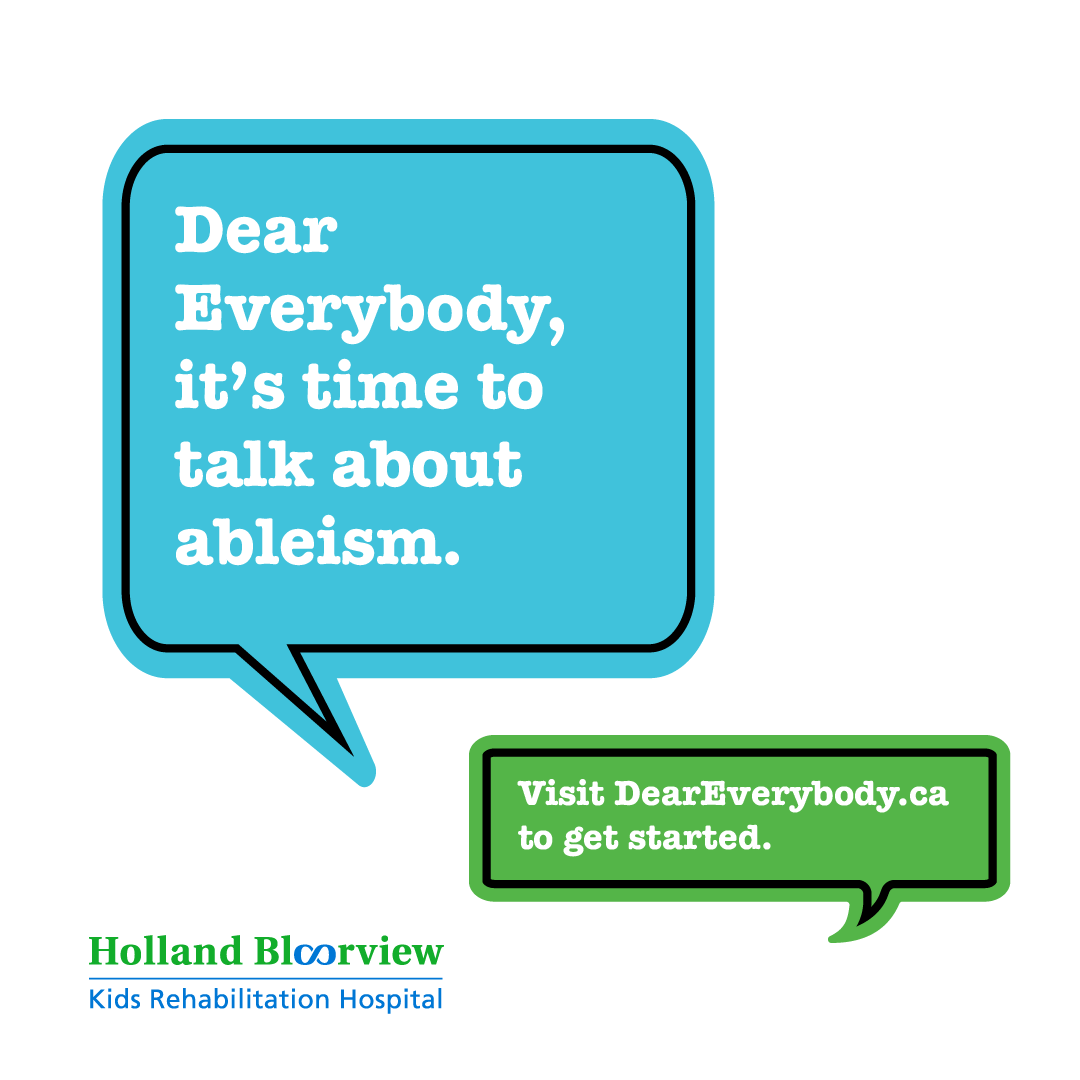Let’s talk about…
Ableism and Assumptions
Ask 17-year-old Rachel to describe herself and she’ll tell you she’s an ARMY—a name for fans of popular Korean pop group BTS. She can recite most, if not all, of their songs, with Butter one of her more recent favourites.
But for this active teenager—who also loves to spend her time cleaning, playing the piano, and studying to take biochemistry in university—being on the go can sometimes be a challenge.
Rachel, along with all three of her siblings, have mitochondrial disease: a genetic condition that means the mitochondria in their cells don’t make energy how they’re supposed to. Each person experiences different symptoms, but for Rachel, that means she experiences a lot of fatigue, heart issues, chronic pain, and migraines.
How are you dealing with that?
It’s hard and some days are definitely better than others. I feel like what a lot of people don’t understand is that I have good days and bad days. On a good day, I might be able to do pretty much everything anyone else can do. But on a bad day, I can’t leave my bed.
I’m so physically exhausted and, obviously, that can be really hard for my mental health, as well, because I’m very ambitious. I love school. I have big plans for my future. It’s really hard to feel like my body can’t keep up with what I want to do.
When some people think about disability, they probably forget invisible disabilities exist. How has that assumption affected your life?
It can be really difficult because when people see me, they don’t know that I have a disability unless I tell them. Sometimes that works for me—people don’t have to know if I don’t want them to. But at the same time, I feel like I’m pretending to be someone that I’m not when I’m trying to keep up with others at school and I can’t, and they don’t even know that I can’t.
It’s difficult at school. People don’t always understand why I need to take breaks or why I can’t stand up for a really long time doing a lab in science class. I really love school and I work really hard, but I feel like I’m having to work several times as hard as everyone else just to stay caught up. A lot of times, I feel worried that if I don’t get an assignment in on time, my teachers assume that I’m just lazy or I don’t care when in reality I’m so stressed about it and I really care. I have very high expectations of myself.
What is something that you would want to tell people who are making these assumptions?
I think the biggest thing is just that whether someone has a visible disability or not, you should never assume that you know what they’re capable of. If you do see someone using a mobility device or with some type of visible disability, you shouldn’t assume that you know what they can and can’t do. You should let them tell you that and only if they want to. And then even if you see someone who appears to be able-bodied, I don’t think it’s fair to assume that they are. I think you should just let people tell you what they’re capable of and not always assume that their appearance gives you all the information about who they are and what they need.
What do you think would make it at least a little bit better?
I think we just need to inform and educate people more. I do think that most ableism and assumptions are not people consciously trying to discriminate against people. I think it mostly just comes because of ignorance: they don’t know how negatively ableism can affect people and maybe they’ve never met someone with disabilities. I think if we can build awareness around it, I think it will get better. I hope so anyway. Everyone is different, period. Different people need different things to get through their day successfully.
What are some steps that you think people should take?
For me, I feel like I am constantly having to talk about it. Whenever I meet someone new in school or if I go to camp or something, it’s something that has to be addressed and I have to explain what my condition is. I am hoping that when people learn more about ableism and how it affects people like me, then schools, camps, and workplaces will really start to design everything with disability in mind—and things will get better for everybody.
Bottom line, we need to be talking about it. Once you see all the ways our world is designed for people without disabilities, you can’t unsee it. And everyone can do something. Everyone can point out if someone says something that’s ableist—whether it’s intentional or unintentional, or they can do their best to support everyone’s needs and be more compassionate towards them. For example, people at school, if I express that I need certain accommodations, I wish those could just happen even if they don’t understand it. It is brutal to have to bring it up at all and having to justify everything makes me not even want to go. My Mum helps a lot with advocacy but I would really prefer to be heard myself.
How do you define ableism?
Thinking or treating people differently because they have a disability. I don’t encounter a lot of blatant ableism—I’ve never experienced people being outwardly rude, nor have been teased—but I think for me, it’s people not understanding and sometimes doubting or not validating that my experience is real because they can’t see it.
